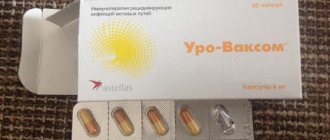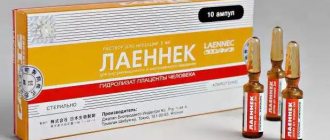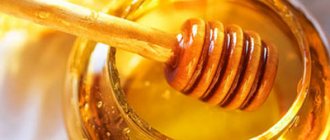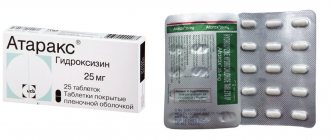Vladimir Manerov
Methionine is an essential amino acid that is part of proteins. The amino acid methionine is used both in sports, and in particular in bodybuilding to improve results, and in everyday life to get rid of problems associated with the liver. I also advise you to read articles with instructions on the use of sports supplements L-tyrosine and melanin.
- Effects of methionine
- Methionine in bodybuilding
- Instructions for use
- Contraindications
- Who needs methionine?
Effects of methionine
This amino acid has several important properties that can be useful for both an athlete and an ordinary person. Here are some of them:
- Serves as a source for the synthesis of adrenaline. Thus, if you feel that you are lacking this particular hormone, its synthesis can be increased by consuming a supplement.
- Adding methionine to animal feed can increase the biological value of food. Similar studies were conducted on human food, which also became more valuable when an essential amino acid was added.
- Allows you to increase the value of vegetable protein. Since vegetable protein is only partially digestible, the addition of essential amino acids, one of which is methionine, allows you to increase the digestibility of vegetable protein, which will certainly affect the growth of muscle mass.
- High dosages help reduce blood cholesterol levels. In the West, the supplement is prescribed along with protein nutrition to those who suffer from high cholesterol. This innovation has not yet caught on with us.
- One of the most important properties is its effect on liver function. It is prescribed to patients suffering from cirrhosis of the liver, as well as people and athletes who have certain (not all) problems with this organ.
- There is also evidence that high dosages have a positive effect on the healing of duodenal ulcers. The supplement has a similar effect in the fight against the treatment of erosive lesions of the gastric mucosa. Thus, it is effective in combating ulcers and gastritis. However, this efficiency should not be overestimated either.
Release form and composition
Methionine is available in the form of pink-coated, round, biconvex tablets. The active ingredient - methionine, is contained in one tablet at a dosage of 250 mg, other components are:
- 0.003 g stearic acid;
- 0.0382 g potato starch;
- 0.0034 g methylcellulose.
The composition of the film shell is represented by liquid paraffin, sucrose, magnesium hydroxycarbonate, low molecular weight povidone, wheat flour, talc, beeswax, azorubine dye. Methionine is sold in 10 tablets in blister packs, 5 pieces in cardboard packs. The drug is also available in polymer jars containing 50 tablets.
Role in nutrition[ | ]
Methionine is an essential amino acid, meaning it is not synthesized in the human body.
Contained in the following foods: Food sources of methionine[3][ not in source
]
| Type of food | g/100 g |
| Egg, dried egg white, low glucose powder | 3.204 |
| Sesame seed, flour (low fat) | 1.656 |
| Brazilian nut | 1.008 |
| Soy protein isolate | 0.814 |
| Fried chicken | 0.801 |
| Tuna canned in water | 0.755 |
| wheat sprouts | 0.456 |
| Oats | 0.312 |
| Peanut | 0.309 |
| Chickpeas | 0.253 |
| Corn, yellow | 0.197 |
| Almond | 0.151 |
| Pinto beans, cooked | 0.117 |
| Lentils, cooked | 0.077 |
| Rice, brown, medium grain, cooked | 0.052 |
| Cabbage |
| Product | Protein | Methionine | M/B |
| Pork raw | 21.26 g | 0 554 mg | 2,6 % |
| Raw chicken fillet | 21.23 g | 0 552 mg | 2,6 % |
| Raw salmon fillet | 20.42 g | 0 626 mg | 3,1 % |
| Egg | 12.57 g | 0 380 mg | 3,0 % |
| Cow's milk, 3.7% fat | 0 3.28 g | 0 0 82 mg | 2,5 % |
| Sesame | 17.73 g | 0 586 mg | 3,3 % |
| Brazilian nut | 14.32 g | 1008 mg | 7,0 % |
| Walnuts | 15.23 g | 0 236 mg | 1,5 % |
| Wheat flour | 13.70 g | 0 212 mg | 1,5 % |
| Corn flour | 0 6.93 g | 0 145 mg | 2,1 % |
| Unpeeled rice | 0 7.94 g | 0 179 mg | 2,3 % |
| Dried soybeans | 36.49 g | 0 547 mg | 1,5 % |
| Whole shelled peas | 24.55 g | 0 251 mg | 1,0 % |
Methionine is used as an amino acid additive to feed in poultry and livestock farming.
In older adults, there has been an association between reduced methionine intake and life expectancy. The presumed mechanism of the effect is associated with excessive protein synthesis by the cells of an aging organism, which slows down with a lack of methionine [4].
Indications for use
According to the instructions supplied with Methionine, its use is indicated for:
- Liver diseases accompanied by the accumulation of fat in hepatocytes - hepatosis (including alcoholic), toxic hepatitis, liver dystrophy, cirrhosis, intoxication;
- Prevention of liver damage caused by the toxic effects of benzene, arsenic, chloroform, ethanol.
The drug is also used as part of complex therapy for atherosclerosis, diabetes mellitus, and protein deficiency of various origins.
pharmachologic effect
Preparations containing methionine have the following abilities:
- have a beneficial effect on the functioning of the liver, protecting it from various toxins, viruses, from the accumulation of fats in the body of the organ and the formation of phospholipids from them;
- have a beneficial effect on the metabolic processes of amino acids, which contain sulfur;
- contribute to the activation of vitamin B12, ascorbic and folic acids, proteins, hormones, enzymes;
- quickly eliminate metals from the body (mercury, lead, cadmium);
- increase stamina during physical activity; resistance to radioactive radiation;
- help in the processes of synthesis of creatinine, epinephrine;
- in the treatment of atherosclerosis, the cholesterol ratio is reduced.
Return to contents
Contraindications
The use of Methionine is contraindicated against the background of:
- Viral hepatitis;
- Hepatic encephalopathy;
- Intolerance to the components of the drug;
- Severe liver failure.
With great caution, the use of the drug is prescribed for severe kidney damage due to the risk of increased hyperazotemia. During pregnancy, the use of the drug is permitted only for medical reasons, and after selecting an individual dosage by the attending physician. This is due to the fact that Methionine in rare cases can increase blood clotting, leading to the formation of blood clots and a potential threat of miscarriage.
Methionine with which amino acids to take. Amino acids - what they are and how to take them.
Amino acids are organic substances consisting of a hydrocarbon skeleton in complex with two groups: amino plus carboxyl. The presence of the last two radicals is the reason for the presence of unique properties that simultaneously possess the properties of acids or alkalis: the first is due to the presence of a carboxyl group, the second is due to the presence of an amino group.
Essential amino acids are effectively used as building materials for proteins needed by our body for the formation of muscles, tendons, ligaments, skin and hair. They help increase the effectiveness of training in combination with building muscle mass. Amino acids effectively promote rapid recovery and relief from pain after intense training. Let us note that the costs associated with the assimilation of this “building material” are quite high. Therefore, the process effectively and directly promotes weight loss.
Amino acids in the human body
Let's move on to consider the effect of amino acids for athletes for physical exercise in general. For every person who prefers an active lifestyle, AAs are important participants in protein metabolism. They are involved in the construction of proteins that help build muscle mass: from skeletal to liver, from muscle to connective tissue. Some are directly involved in metabolism. Arginine is a participant in the ornithine urea cycle, which is a unique mechanism that promotes the neutralization of ammonia, which can be formed in the liver during the digestion of proteins.
Tyrosine is involved in the synthesis of catecholamines - adrenaline and norepinephrine - hormones that maintain the tone of the cardiovascular system, reacting instantly to stressful situations.
The amino acid tryptophan is a precursor of melatonin, which is a sleep hormone, formed in the pineal gland, which is the pineal gland of the brain. With a lack of this element, the process of falling asleep becomes more difficult, insomnia and other diseases associated with it develop.
The complex of amino acids we take helps maintain normal nitrogen balance. The nitrogen that healthy people receive from food during a normal diet is equal to the excreted urea and ammonium salts. After a complex disease or when the body is growing, an imbalance occurs and the balance shifts towards slightly less nitrogen excretion in comparison with what was received. A negative balance is encountered when the body ages, due to starvation or lack of proteins.
Bcaa amino acids are designed to compensate for the deficiency of specific substances. Although it is also necessary to receive elements in natural form, which is ensured by a balanced diet. Our body cannot do without protein foods. The most complete proteins include milk, and the value of vegetable protein is much lower. Thanks to the correct combination of products, it is possible to achieve the required amount of 20 amino acids that are important for us, for example, thanks to a mixture of beans and corn. These products contain an organic combination of essential substances. To obtain the daily requirement, 500 grams of dairy products is enough, not forgetting about other foods.
Amino acids in sports nutrition are effective as an irreplaceable source of energy replenishment and are found in the following products:
- Leucine: From nuts to brown rice, from soy flour to lentils, from oats to all seeds.
Phenylalanine: From dairy products to avocados, from legumes to seeds and nuts. It is formed during the breakdown of aspartame, a sweetener often used in foods.
Valine is an amino acid: from all dairy products to soy protein, from grains to mushrooms and peanuts.
Tryptophan: from oats to legumes, from milk to cottage cheese, from yogurt to pine nuts, from peanuts to sesame seeds.
Isoleucine: From nuts, especially almonds and cashews, to all seeds, from rye to soy, peas to lentils.
Lysine is an amino acid: from cheese to dairy products, from wheat to potatoes.
Methionine: From lentils to beans, from garlic to onions, from soy to beans, from all seeds to dairy products.
Threonine: from milk to yogurt, from cottage cheese to cheese, from green vegetables to grains, from beans to nuts.
Arginine: From pumpkin seeds to sesame seeds, from peanuts to raisins, from Swiss cheese to chocolate.
Histidine: From dairy products to rice, from wheat to rye, from soybeans to peanuts.
special instructions
The medication must be taken in proportion to other amino acids. Unbalanced consumption of Methionine in high doses can cause damage to liver cells and other organs.
People with diabetes need to remember that the coating of the drug tablets contains sucrose.
In patients suffering from atherosclerosis, when using the drug, a decrease in the concentration of cholesterol in the blood and an increase in phospholipids were noted.
When Methionine is used in combination with levodopa, its effectiveness decreases.
Analogues of the drug Methionine
The group of hepatoprotectors includes analogues:
- Ornitsetil;
- Hepabos;
- Antraliv;
- Ursor;
- S-Adenosylmethionine;
- Essentiale N;
- Hepatosan;
- Choludexan;
- Legalon 70;
- Ursodex;
- Livodex;
- Geptrong;
- Livolife Forte;
- Hepa-Merz;
- Lipoic acid;
- Octolipen;
- Espa Lipon;
- Urdoxa;
- Urso 100;
- Silimar;
- Karsil Forte;
- Heptor;
- Glutargin;
- Mylife;
- Silegon;
- Ursodeoxycholic acid;
- Erbisol;
- Thiotriazolin;
- Ursofalk;
- Essential phospholipids;
- Exhol;
- Phosphonciale;
- Essliver;
- Result Pro;
- Molixan;
- Cawehol;
- Heptral;
- Essentiale forte N;
- Alpha lipoic acid;
- Vitanorm;
- Maxar;
- Silymarin;
- Thiolipon;
- Brenziale forte;
- Legalon 140;
- Methionine;
- Metro;
- Cryomelt MN;
- Silibinin;
- Berlition;
- Ursosan;
- Ursoliv;
- Karsil;
- Sirepar;
- Ursodes.
General Product Information
Conditions and shelf life.
Store in the original container at a temperature not exceeding 25 ºС.
Keep out of the reach of children.
Shelf life: 4 years.
Vacation conditions
. Over the counter.
Package
. 10 tablets in a blister. 10 tablets per blister, 5 blisters per pack.
Manufacturer.
Public joint-stock company "Kiev Vitamin Plant".
Location.
04073, Ukraine, Kiev, st. Kopylovskaya, 38.
Website.
www.vitamin.com.ua
This material is presented in free form on the basis of the official instructions for medical use of the drug.
1 reviews
L-Methionine -
aliphatic essential amino acid. Methionine is part of proteins. Methionine also serves in the body as a donor of methyl groups (as part of S-adenosyl-methionine) during the biosynthesis of choline, adrenaline, etc., as well as a source of sulfur during the biosynthesis of cysteine. Synthetic methionine is used to fortify feed and food. The pharmacological preparation of methionine has a lipotropic effect, increases the synthesis of choline, lecithin and other phospholipids, to some extent helps reduce cholesterol in the blood and improve the phospholipid/cholesterol ratio, reduce the deposition of neutral fat in the liver and improve liver function, and may have a moderate antidepressant effect (according to -apparently due to the effect on the biosynthesis of adrenaline). S-adenosyl-methionine (SAMe, heptral) has a stronger positive effect on liver function and a more pronounced antidepressant effect than methionine. Methyl-methionine-sulfonium (in pharmacology known as “methiosulfonium chloride”), or “vitamin U”, has a pronounced cytoprotective effect on the mucous membrane of the stomach and duodenum, promotes the healing of ulcerative and erosive lesions of the mucous membrane of the stomach and duodenum.
Indications for use:
L-Methionine
capsules are recommended for use in the following diseases: - Hepatitis, cirrhosis, dystrophy and toxic liver damage, Gilbert's syndrome, cholelithiasis, liver dysfunction. - Poisonings where large amounts of glutathione are required to neutralize toxins and protect the liver. - Toxicosis of pregnancy. - Deterioration and hair loss, brittle nails, early aging of the skin. — Depression, chronic fatigue syndrome. - Atherosclerosis. - Parkinson's disease. - Prevention of urinary tract infections. Cystitis, especially in young women, who suffer from it much more regularly than other segments of the population. - Alzheimer's disease. - Alcoholism. - Obesity, diabetes. — Women who use oral contraceptives or take estrogen-containing medications. — In sports nutrition, including weightlifting, to accelerate recovery processes after training and wound healing.
Directions for use: L-Methionine
Take 2 capsules daily 1-3 times as needed, preferably on an empty stomach.
Side effects:
When taking
L-Methionine
, the following side effects may occur: very rarely - allergic reactions, nausea, vomiting.
Contraindications
.
L-Methionine
capsules if you are hypersensitive to the components of the drug.
Storage conditions:
Keep out of the reach of children.
Release form: L-Methionine
— gelatin capsules 500 mg; 100 pcs per pack.
Compound
:
1 capsule L-Methionine
contains: Vitamin B-6 (pyridoxine chloride) 10 mg L-methionine (free form) 500 mg Excipients: gelatin (capsules), magnesium stearate (vegetable source), silicon dioxide .
Additionally
: Methionine is necessary for the normal development of the nervous system. If it is deficient during pregnancy, infants may have neural tube defects (spina bifida - incomplete closure of the neural tube). Vegetarians are more susceptible to methionine deficiency than those who consume meat products. Do not take too much methionine if you eat a lot of meat. If you have too much methionine and are deficient in vitamins B6 and folic acid, methionine in the body is converted to homocysteine, which worsens heart disease. If you take too much L-methionine, additional supplementation is needed vitamin B6 and folic acid.












